Austria
participants
The purpose of the local dialogue workshop was to gather qualitative information from young participants regarding the barriers they face in accessing international opportunities and exercising their rights as mobile individuals.
The workshop had a total of 29 participants. Except from 2, all participants are members of sections from ESN Austria. Facilitated by two ESN volunteers, the session involved open discussions focused on key topics related to international mobility, opportunities within the European Union (EU), challenges faced by young people, and the impact of mobility on civic engagement.
Outcomes
Main Motivations for Going Abroad:
The participants expressed various motivations for pursuing international opportunities, including self-development, organizational skills, experiencing different educational systems, and a desire to explore new cultures.
Awareness of EU Opportunities:
All participants were familiar with the Erasmus+ program, while some mentioned the European Solidarity Corps and Erasmus Mundus. Non-EU funded exchange programs, scholarships from universities, and governments were also mentioned.
- Challenges and Barriers:
- Financial constraints, complex bureaucracy, limited accommodation options, and a lack of awareness and guidance were identified as major obstacles to participating in international mobility programs.
Rights of EU Citizens:
Participants highlighted the freedom of movement and work, freedom of speech, and the right to non-discrimination as essential rights for EU citizens.
Impact of Mobility and Civic Engagement:
The participants acknowledged the positive impacts of international mobility, such as gaining cultural and language exchange experiences, broadening perspectives, and becoming more independent and active citizens.
Recommendations and Conclusions:
Based on the discussions, several recommendations emerged:
- Improve Awareness and Guidance: Enhance information dissemination about various mobility programs and provide better guidance to potential participants at universities and within the host countries.
- Simplify Bureaucratic Processes: Streamline visa application procedures and reduce paperwork to facilitate access to international opportunities.
- Expand Opportunities and Diversity: Encourage the EU to support universities in offering more diverse options for international mobility, even if not all programs can accommodate larger numbers of students.
- Standardize Course Naming: Consider standardizing the names of courses, particularly within the Erasmus program, to facilitate credit transfer and recognition.
- Address Accommodation Challenges: Provide assistance and resources to help participants find suitable and affordable housing when going abroad.
Overall, the workshop highlighted the importance of international mobility programs in fostering personal growth, intercultural understanding, and active citizenship. The recommendations put forth by the participants aim to address existing barriers and improve the accessibility and effectiveness of such programs
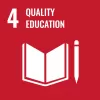
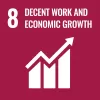
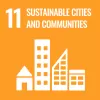
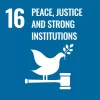
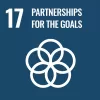
This activity is part of the project:
Erasmus Generation in Action (EGiA)